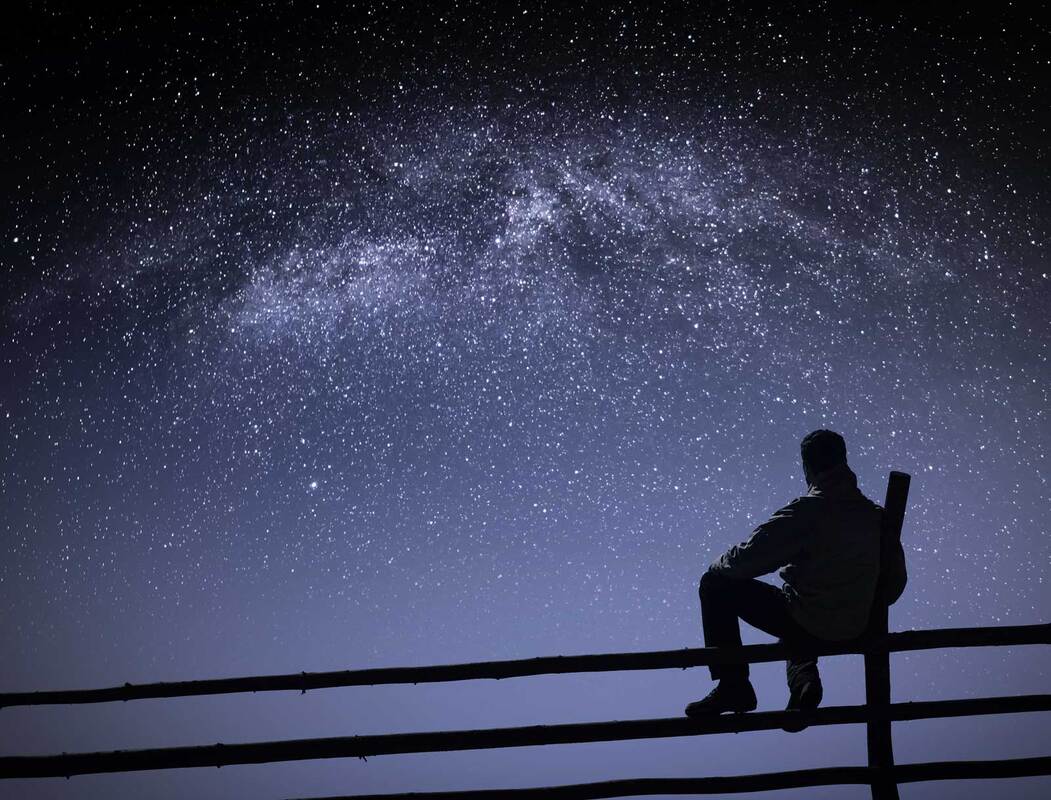|
We’ve all experienced it. We gaze up at the stars at night, and it gives us a strange feeling. Suddenly, we have questions we don’t normally think of. Even people who don’t normally give a hoot about science suddenly understand why scientists are so drawn to the mysteries of the universe.
It’s not only the stars that have this effect. A view of any breathtaking scene can do the trick. The dramatic play of light on ominous clouds following a thunderstorm. A vast landscape of mountains, or prairie, or forest. The Grand Canyon. A coral reef, teeming with brightly-colored fish and invertebrates. The list could go on. Personally, I get the same feeling when I look at tiny things through a microscope, seeing a hidden world on the surface of an insect’s head, for example. The point is, looking at certain things gives us a sense of awe. Why? And what is awe anyway? “Awe is the feeling of being in the presence of something vast that transcends your understanding of the world.” This is a quote from Greater Good Magazine, and I think it sums it up nicely. However, different people experience awe in different ways. Awe does not have to come just from looking at the stars. I feel awe when I watch a music performer I have admired all my life. I feel awe when I watch a spectacular movie, such as Avatar. I feel awe when I read a book that is so well written that I cannot put it down. I’m beginning to realize it is important to seek out new ways to experience awe. We should learn to feel awe as we watch the maple leaves turn orange in the fall. We should feel awe when we see a child laugh or smile just like their parents, or when we see someone give money to a homeless person. We should feel awe every time we find a crinoid fossil on a lake shore, or see a T. Rex skeleton in a museum. We should learn to feel awe as often as a four-year old child does. Awe has evolutionary roots. Historically, awe would bring people together, bound by fascination, to achieve the same objectives. Unfortunately, awe is becoming endangered as people spend more time indoors and working mind-numbing jobs. Awe can be found indoors, but it is much easier to find outdoors. Not only that, but if people forget how to feel awe at the natural world, we will have lost what it means to be human. Remember to look up at the stars.
0 Comments
Leave a Reply. |
Stan's Cogitations
Everyone needs a creative outlet. That's why I write. Archives
July 2024
|


 RSS Feed
RSS Feed